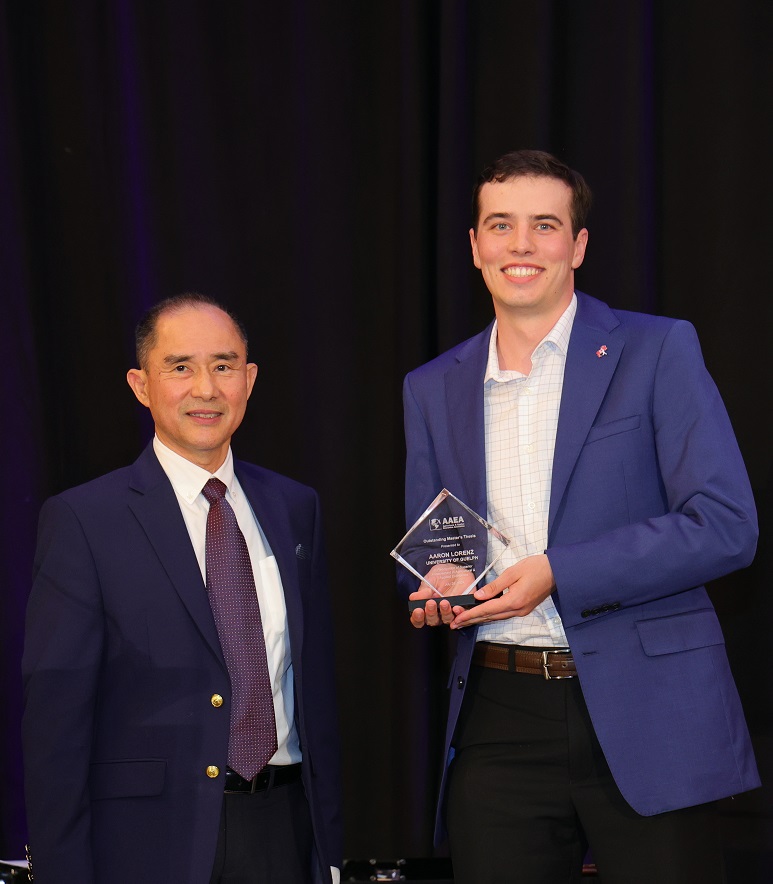Solving Global Challenges in Agri-Food Economics
Aaron Lorenz is a rising star in the field of agricultural economics, driven by a passion for improving global food security and a commitment to making a real-world impact. Growing up in Southern Alberta, Aaron witnessed firsthand the vital connection between farms and food. This early exposure sparked a lifelong interest in the economics of agriculture and its potential to address pressing global challenges, particularly in vulnerable communities.
Aaron’s academic journey took him from an undergraduate degree in economics at the University of Lethbridge to the Ontario Agricultural College (OAC) at the University of Guelph, where he pursued his MSc in Food, Agricultural, and Resource Economics (FARE). Drawn to Guelph by the university’s strong community focus and the opportunity to work with his advisor, Dr. Yu Na Lee, Aaron found the FARE program to be the perfect environment for his research ambitions.
"The small class size meant we could have great discussions, and I learned so much about how food policy can improve food security," Aaron recalled, highlighting the value of the close-knit cohort and faculty support.
The centerpiece of Aaron’s time at Guelph was his research on Indonesia's Raskin Program, which at its height was the world’s largest food assistance initiative. His study investigated whether the availability of food through this program could reduce the incidence of child marriage by alleviating the economic pressures that often drive families to marry off their daughters at a young age.
"My research investigated whether the program might have reduced a daughter's risk of child marriage by making it easier for her family to feed her," Aaron explained. The implications of this research are profound, as it sheds light on the complex interplay between food security and social practices in developing countries.

"Unfortunately, the results suggest that more targeted programs might be needed, and thus, there is a need for more research," he added, emphasizing the ongoing need to refine and adapt food assistance policies to address deep-rooted societal issues.
Aaron’s work earned him the prestigious Outstanding Master’s Thesis Award from the Agricultural & Applied Economics Association (AAEA), a recognition that underscores the significance of his findings and their potential to influence policy on a global scale. His success at Guelph also paved the way for his current pursuit of a PhD in applied economics at the University of Minnesota, where he continues to delve into the critical issues at the intersection of agriculture, economics, and food security.
Reflecting on his time at U of G, Aaron credits the OAC with providing the foundational knowledge and support that prepared him for the challenges of PhD-level research. "The professors in my department gave me great advice on economics' hidden curriculum, and the courses I took prepared me well for PhD-level theory courses. They also did a great job assisting me with the complicated process of applying for PhD programs," he noted.
Looking to the future, Aaron hopes to channel his research into a career that combines teaching and continued exploration of agricultural economics.
"I would like to become a professor of economics and continue to do research. A career where I get to learn for the rest of my life while hopefully making a positive impact on agriculture sounds amazing to me," he shared.
For those aspiring to follow a similar path, Aaron offers this advice: "Do a degree with the University of Guelph's FARE program. Make sure you take lots of classes focusing on statistics. There is just so much data in agriculture today that knowing how to work with it is super important."